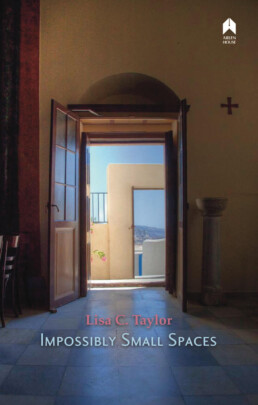
Lisa C. Taylor
Impossibly Small Spaces
ISBN: 9781851321780
The short story dwells within narrow corridors and, in Impossibly Small Spaces, a collection that seamlessly matches form with content, Lisa C. Taylor gifts the reader with cut-glass explorations of the diminishing spaces and of the freedoms – illusory, fleeting, elusive – so craved by a heartbreakingly real cast of characters. Wonderful. – Alan McMonagle
The stories in Impossibly Small Spaces write you into a world that is very much today’s America. Intensely lyrical, it is brimming with characters whose lives are being shaped by the strictures of their own inadequacies. As in her first collection, Lisa tackles such emotive topics as death, adoption, breast surgery and rape with subtle intensity, reminiscent of Alice Munroe or Amy Bloom. Here are stories where the characters are either physically or emotionally scarred. They don’t know who they are and spend their time trying to prove they exist, often in impossibly small spaces. She gives voice to people holding onto past hurts, who are not able to talk to one another. Here we meet a woman who is returned to the orphanage ‘like a pair of shoes that didn’t fit right’, or another who dreams an afterlife where the missing parts will find her. There are people who record their voices to establish proof of their own existence or talk to the lake … ‘because water has an enormous capacity for listening’. One of the significant things about this book is that even with such tough themes, they are not without humour or hope. Hugely perceptive, sizzling with electric images, this is top-class writing where grace and precision are brought to bear on lives that glow brightly in the reader’s mind long after the last page. – Geraldine Mills
A woman locks a man in an airplane bathroom, two brothers rewrite their past, and strangers in an airport are thrown together through tragedy. In Lisa C. Taylor’s second collection of short fiction she explores confinement and expansion, the psychic and literal distance of people who sometimes find themselves in the role of minor character in their own narrative. With both humour and angst, characters of all ages and backgrounds are continually forced to redefine their personal landscapes. – Ellen Meeropol
